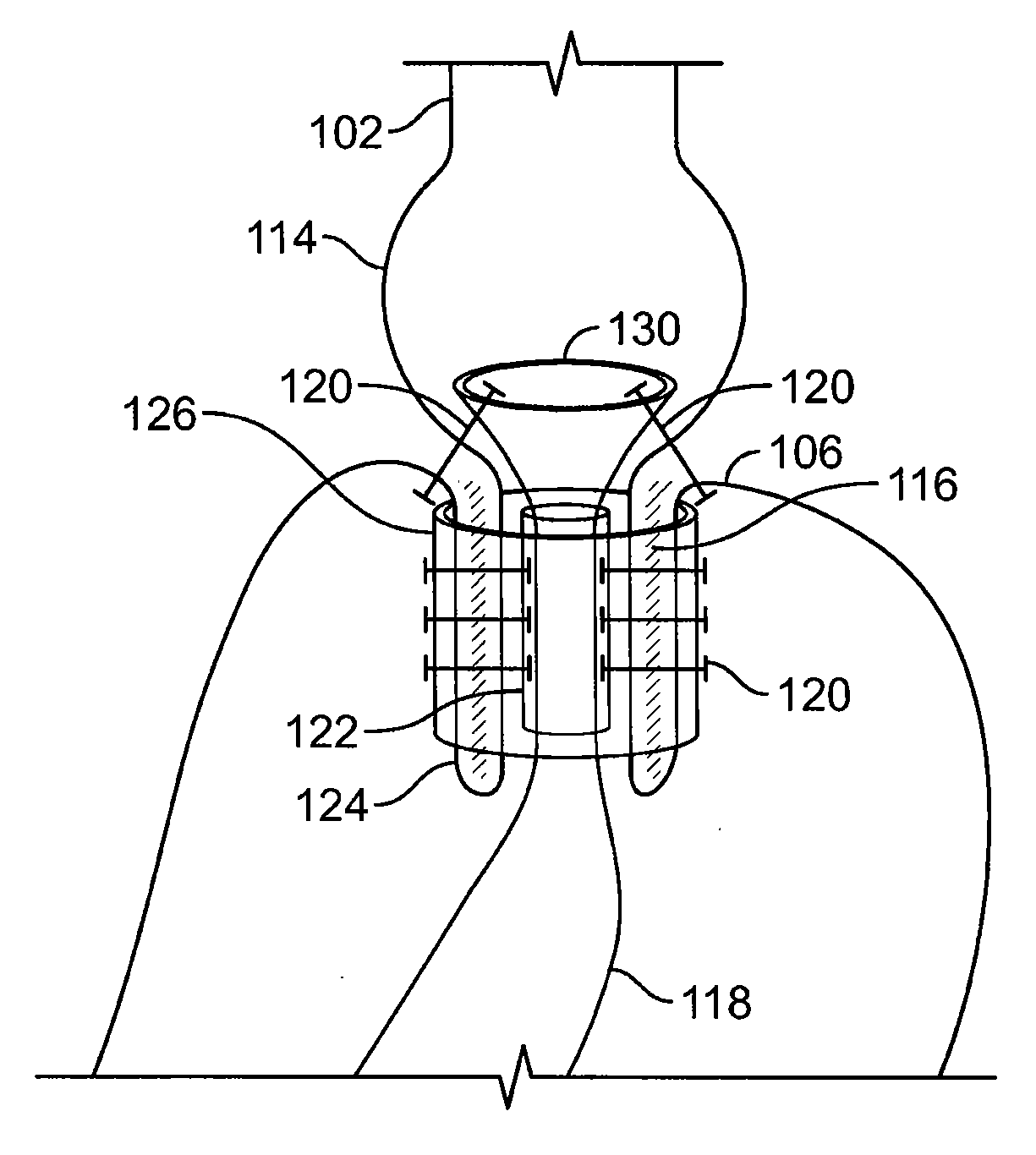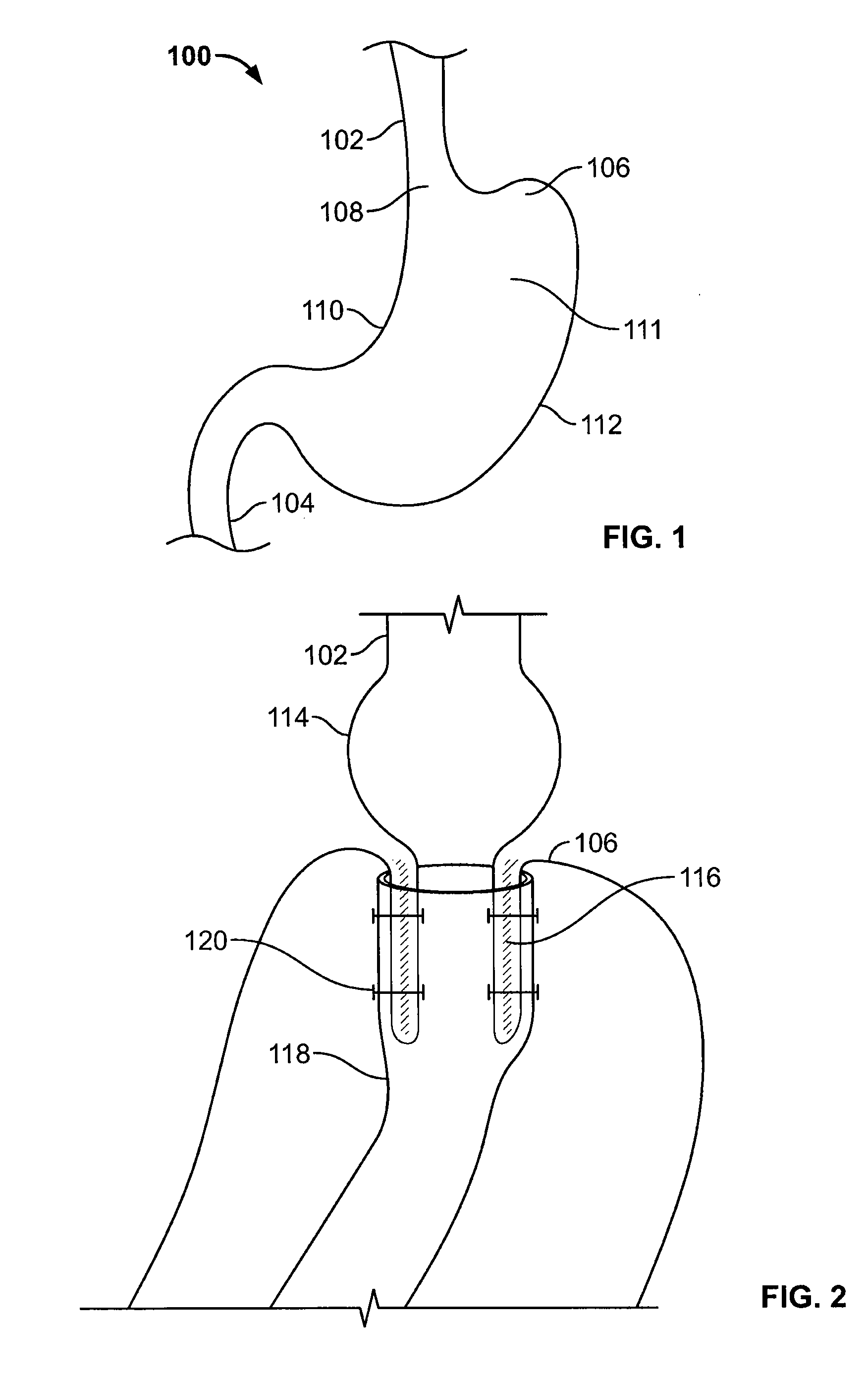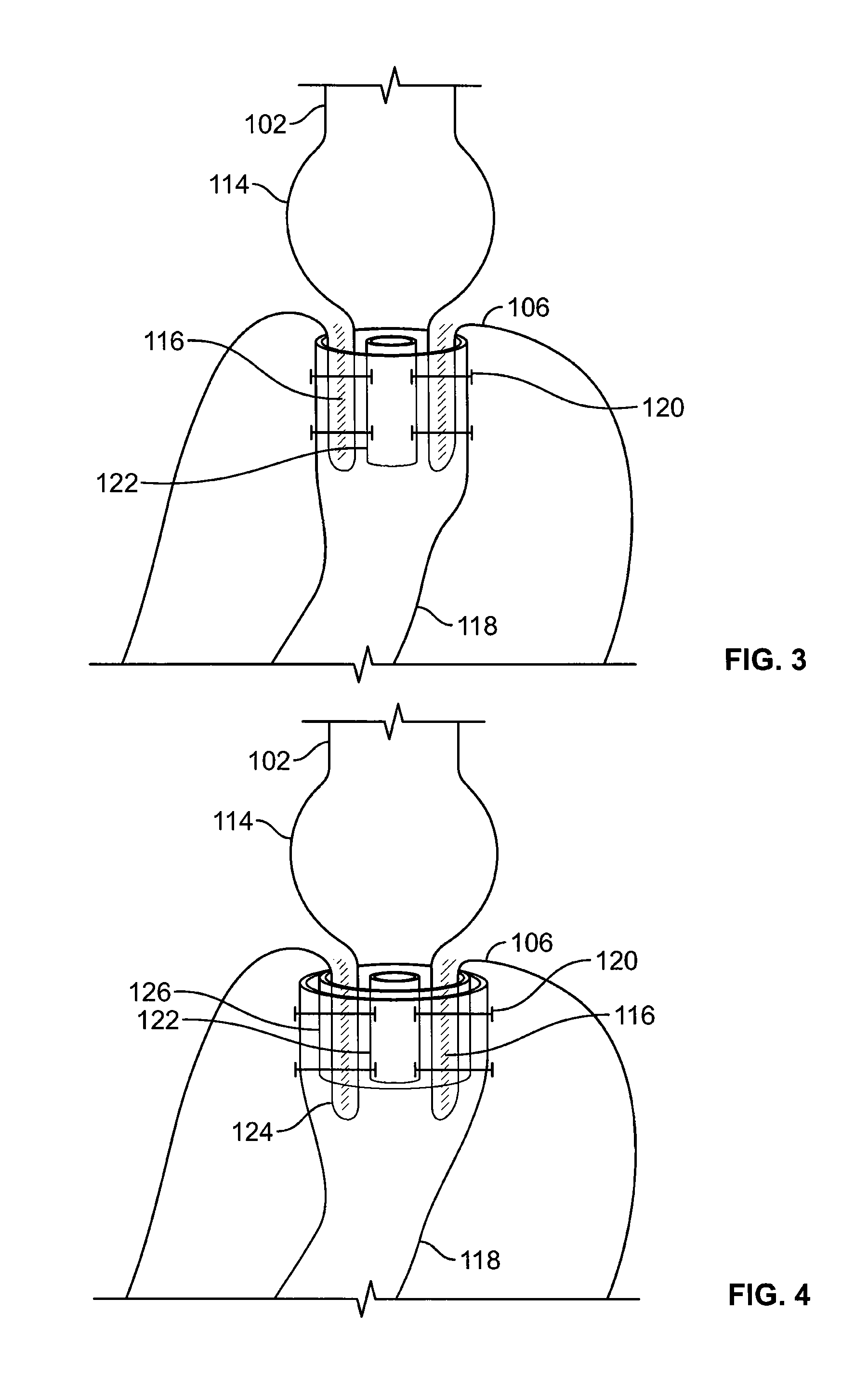Devices and methods to deliver, retain and remove a separating device in an intussuscepted hollow organ
a separating device and hollow organ technology, applied in the field of improving the delivery, retention, and removal of separating devices, can solve the problems of inhibiting the ability or desire to consume, and achieve the effects of reducing or inhibiting the natural process of digestion and absorption, reducing the amount of tubular cavity or canal limiting, and accelerating the movement of food
- Summary
- Abstract
- Description
- Claims
- Application Information
AI Technical Summary
Benefits of technology
Problems solved by technology
Method used
Image
Examples
Embodiment Construction
[0059]In its several embodiments, the present invention provides i) an improved separating device for implantation within a gastrointestinal (GI) tract of a patient to facilitate weight loss; ii) an apparatus for retaining the separating device; iii) a delivery device for implanting the separating device; iv) a removal device for retrieving the separating device (or a portion thereof); v) a method of delivering the separating device; vi) a method of retaining the separating device; and vii) a method of retrieving the separating device.
DEFINITIONS
[0060]As used herein, the following terms are defined as indicated below, consistent with the principle that a patentee can be his own lexicographer.
[0061]The terms “hollow organs” include, but are not limited to, the organs of the gastrointestinal tract including the esophagus, the stomach, and the small intestines.
[0062]The terms “intussuscept,”“intussusception,”“intussuscepting,”“intussuscepted,” and the like refer to the geometry created...
PUM
 Login to View More
Login to View More Abstract
Description
Claims
Application Information
 Login to View More
Login to View More - R&D
- Intellectual Property
- Life Sciences
- Materials
- Tech Scout
- Unparalleled Data Quality
- Higher Quality Content
- 60% Fewer Hallucinations
Browse by: Latest US Patents, China's latest patents, Technical Efficacy Thesaurus, Application Domain, Technology Topic, Popular Technical Reports.
© 2025 PatSnap. All rights reserved.Legal|Privacy policy|Modern Slavery Act Transparency Statement|Sitemap|About US| Contact US: help@patsnap.com



